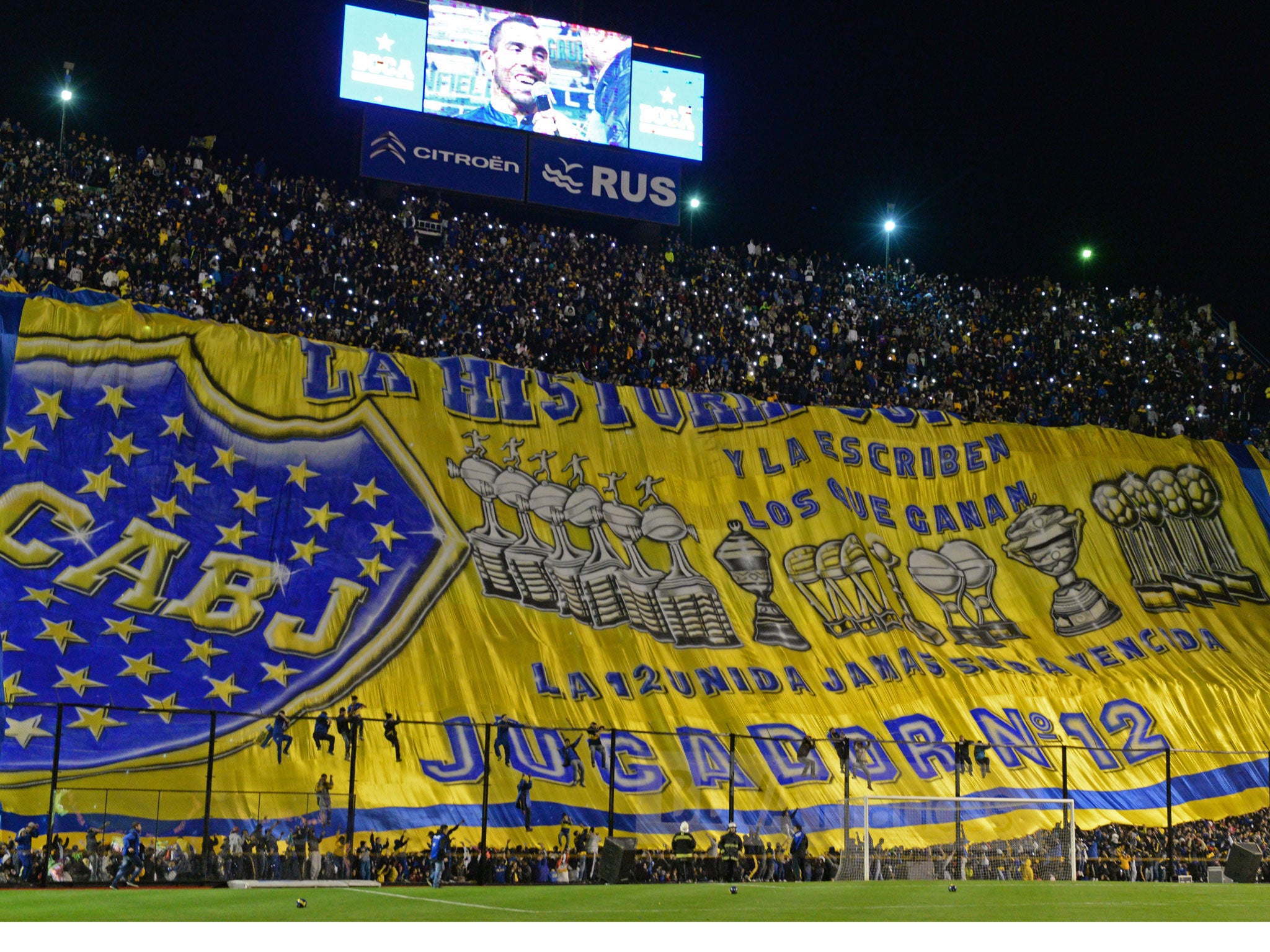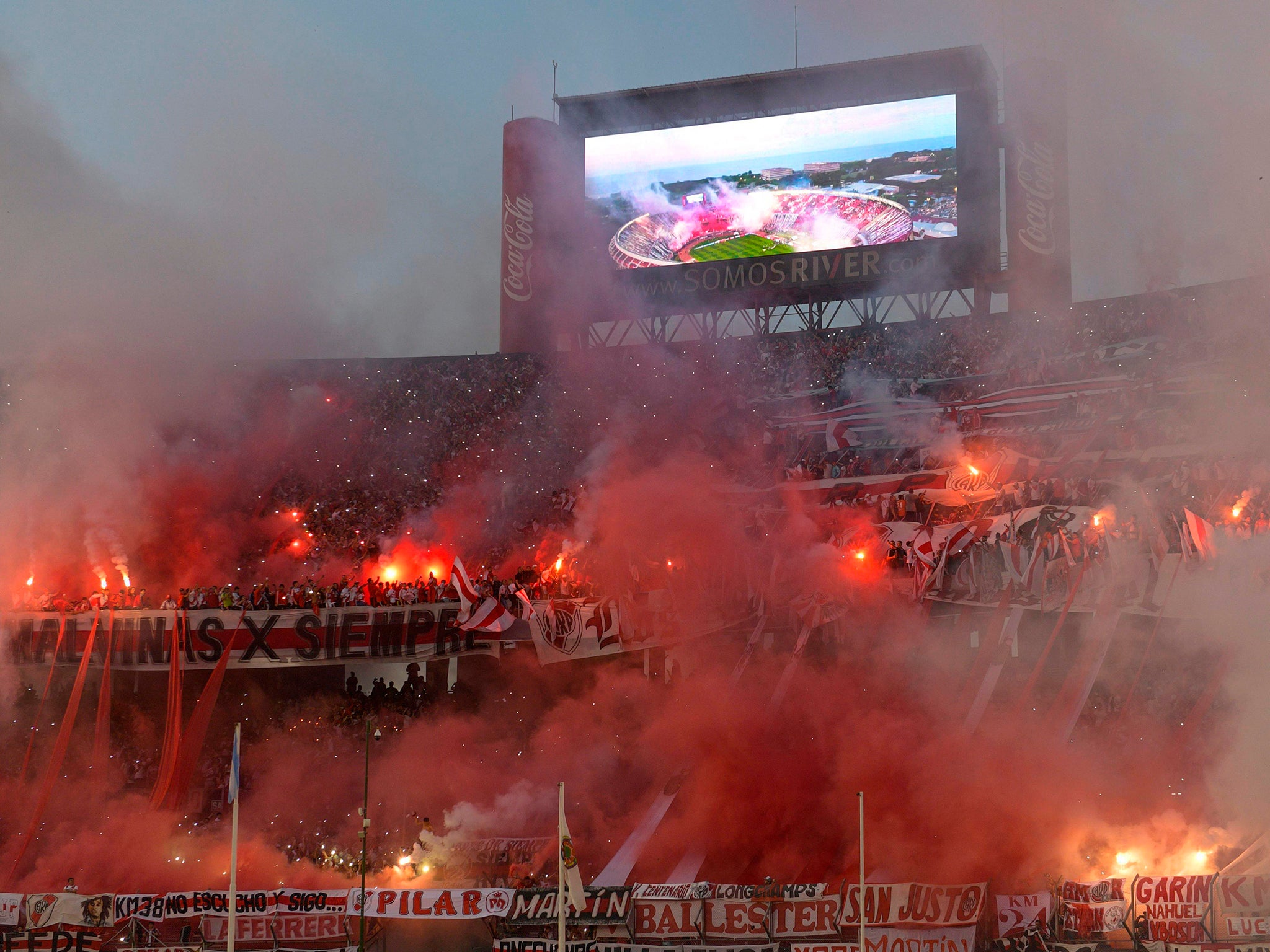Boca Juniors vs River Plate, Copa Libertadores final 2018: Why there has never been a football match like this and there never will be again
Not only is it the first time two of football's biggest rivals have met on the biggest stage they can, it's also the last time they'll be able to do it in Buenos Aires
Your support helps us to tell the story
From reproductive rights to climate change to Big Tech, The Independent is on the ground when the story is developing. Whether it's investigating the financials of Elon Musk's pro-Trump PAC or producing our latest documentary, 'The A Word', which shines a light on the American women fighting for reproductive rights, we know how important it is to parse out the facts from the messaging.
At such a critical moment in US history, we need reporters on the ground. Your donation allows us to keep sending journalists to speak to both sides of the story.
The Independent is trusted by Americans across the entire political spectrum. And unlike many other quality news outlets, we choose not to lock Americans out of our reporting and analysis with paywalls. We believe quality journalism should be available to everyone, paid for by those who can afford it.
Your support makes all the difference.There has never been anything like this, and there never will be again.
For that reason alone, the Copa Libertadores final between River Plate and Boca Juniors will be one of the most unique and memorable ties in football history when these most bitter of rivals meet this month to decide who will wear the crown of South American football.
The only things that these two clubs share - being complete opposites in many regards - are a city and a rivalry unmatched anywhere else on the planet.
Boca hail from the run-down docks in the south of Buenos Aires where their stadium, La Bombonera, is one of football’s great cathedrals with its steepling sides crushed in among a tightly-packed, down-on-its-luck neighbourhood.

River used to hail from there too, until a yellow fever outbreak early in the 20th century saw them move to the well-heeled northern parts of the Argentine capital. It is why they are now known as Los Millionarios (The Millionaires) and the class battle remains a key tenet of their cross-town rivalry. El Monumental, River’s home, is a classic South American bowl of a stadium and there are few greater sights in the sport than when it fills with the smell of gunpowder and the blinding lights of pyrotechnics on those big game nights. None have ever been as big as this though.
These two have met in the knockout stages of South America’s equivalent of the Champions League before, indeed they did so just three years ago, but never to decide the trophy itself.
On that occasion, Boca fans made a hole in the protective tunnel that prevents the players being hit by missiles as they enter the pitch (welcome to South America!) and pumped in a home-made tear gas that hospitalised several River players with burns to the skin and eyes, forcing the match to be abandoned at half-time and sending River through, where they eventually won the competition.
Both sides are managed by former players who are veterans of these encounters, and while the amount of money-spinning ‘friendlies’ that have occurred between Boca and River up and down the country have sometimes dulled the usually explosive atmosphere, playing one another for the biggest prize on the continent is sure to not only reignite it but make it the only topic of conversation anywhere in Argentina for nearly a month.
Such high stakes mean that, unfortunately, no away fans will be allowed to attend the game. Away fans have been banned for domestic fixtures in Argentina for some time, an unnecessary risk for the police and security services in a country where hooligan groups are so deeply interwoven with organised crime that deadly assaults and murder would occur all to regularly. It is only football, but for too many in Argentina it is dirty business as well.
Which means that this year’s final will see each side get a home game with 100% of the fans in there to support their team, a concept made all the more interesting by the fact that it is the final time this will happen before Conmebol moves to a one-off final hosted at a neutral venue.

In many ways, the thought of both halves of Buenos Aires descending on some poor city in Peru or Chile (or, let's be honest, Qatar) for a game of this magnitude is horrifying. It would be a security operation that would require army troops and it is a stroke of fortune that the local police in Argentina’s capital are at least used to putting on such fixtures.
The fans who can get tickets will be witnessing history, one of football’s greatest rivalries catapulted onto the biggest stage possible and split over two legs for one final hurrah. There is hope too, behind the scenes, that if these clubs can put on a show to the world then they can find themselves included in recent proposals for an expanded Club World Cup that would guarantee them hugely increased revenues.
From that point of view, this is a chance for Argentina’s two biggest clubs - perhaps South America’s two greatest - to put on a show for the world.
The only thing they’ll be focused on, however, is beating the other.
Join our commenting forum
Join thought-provoking conversations, follow other Independent readers and see their replies
Comments